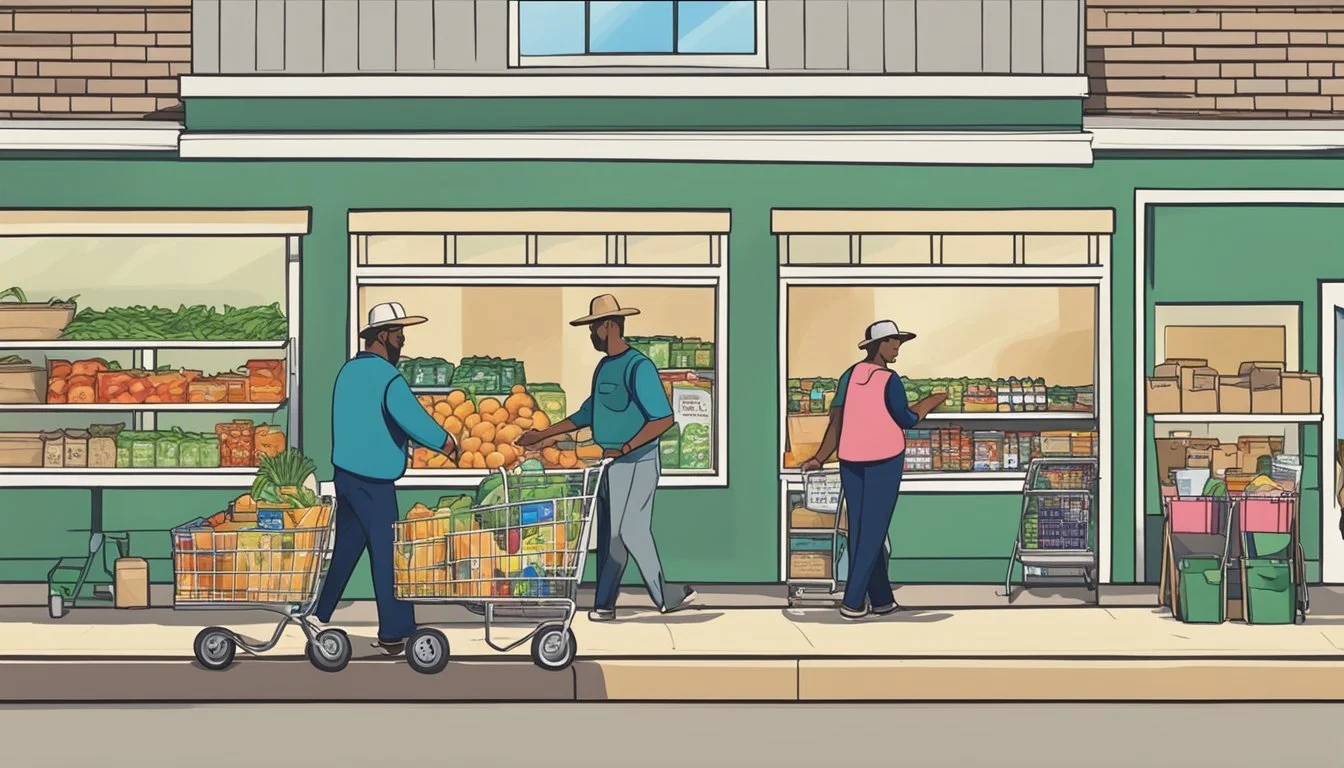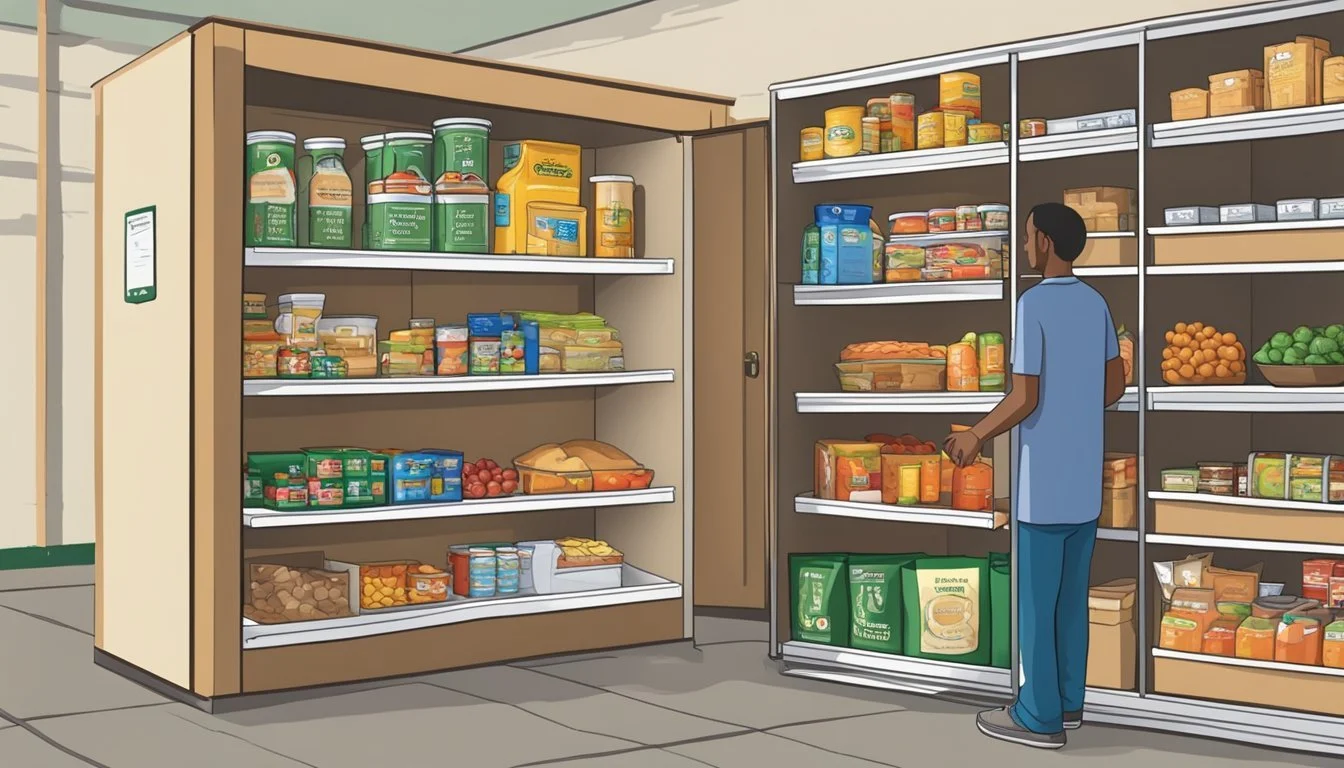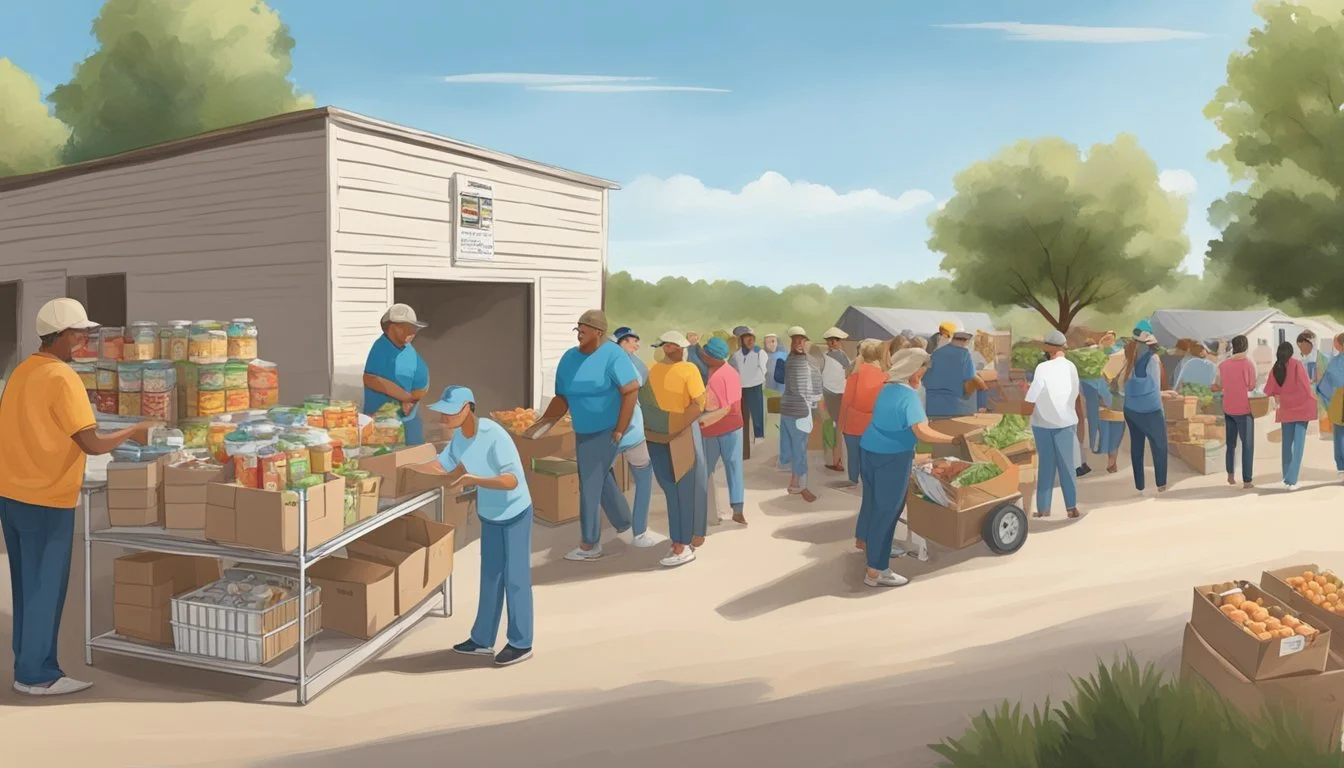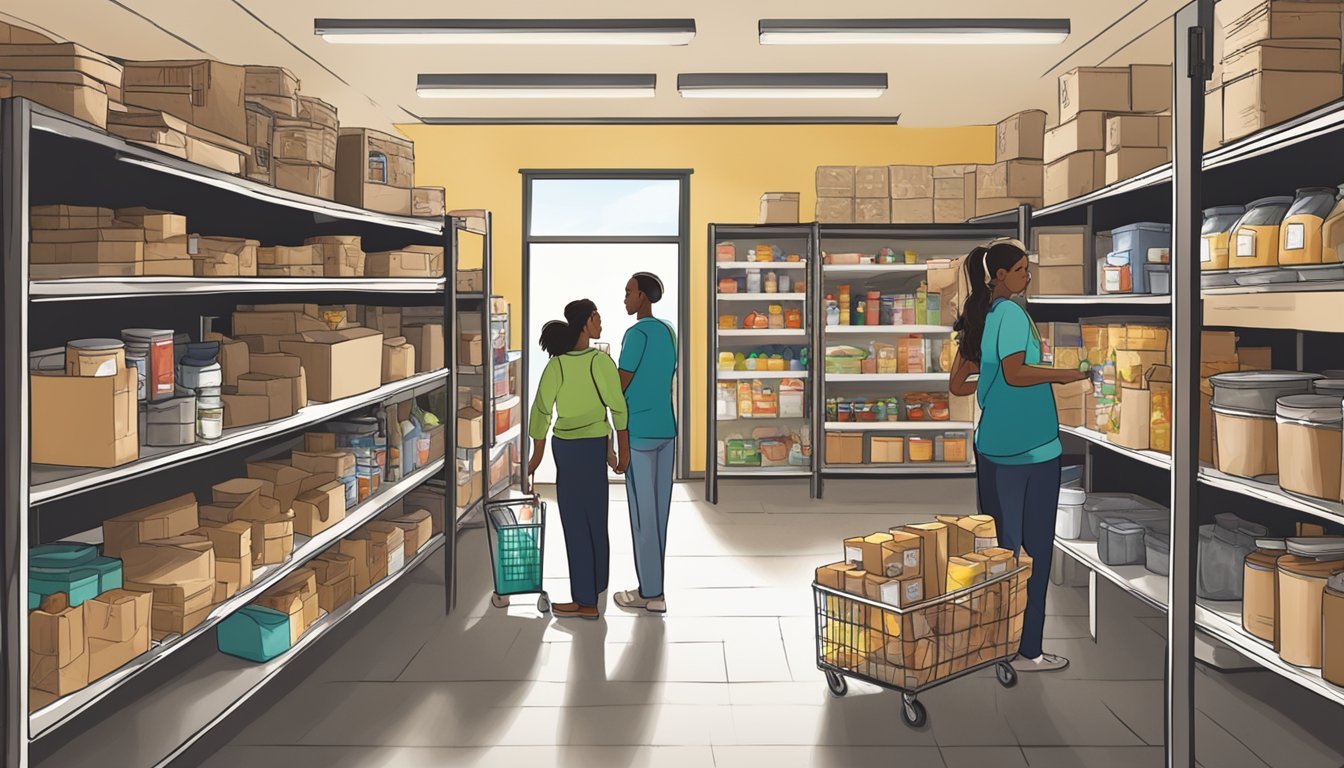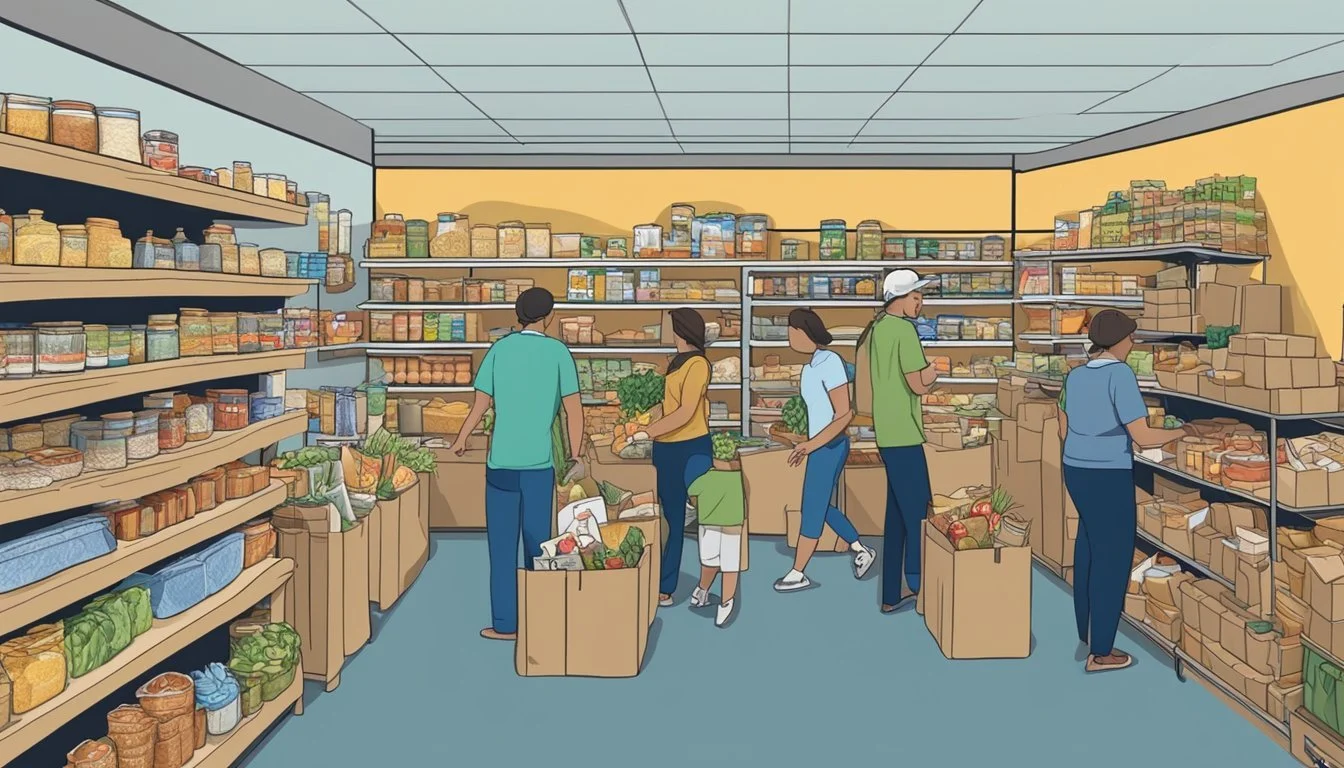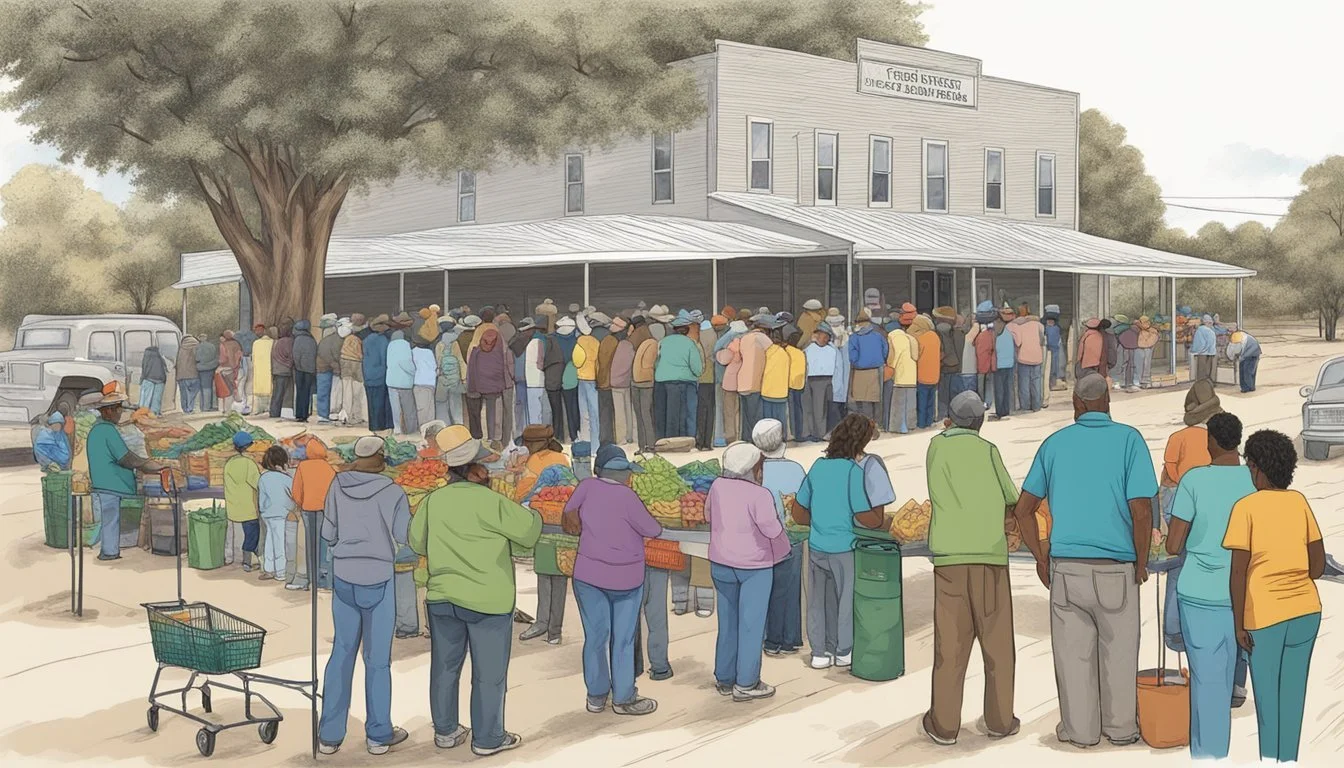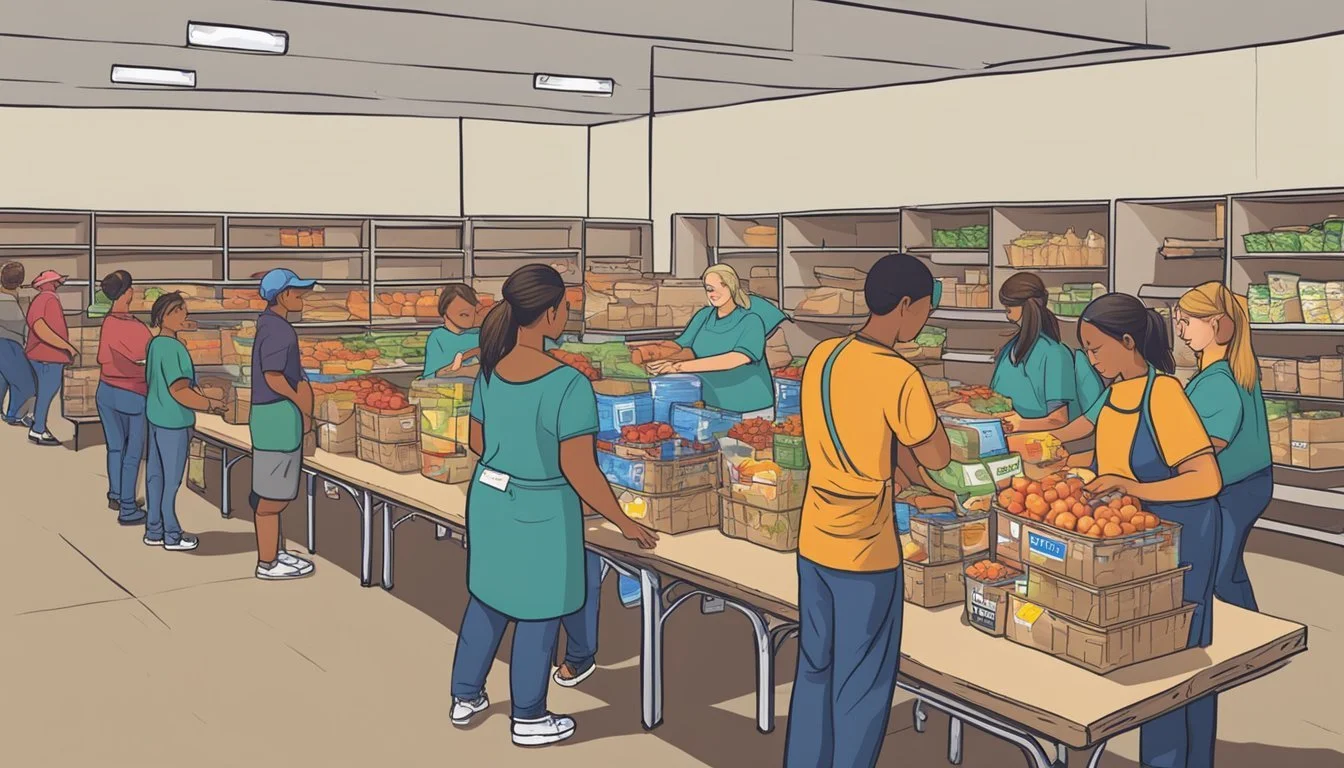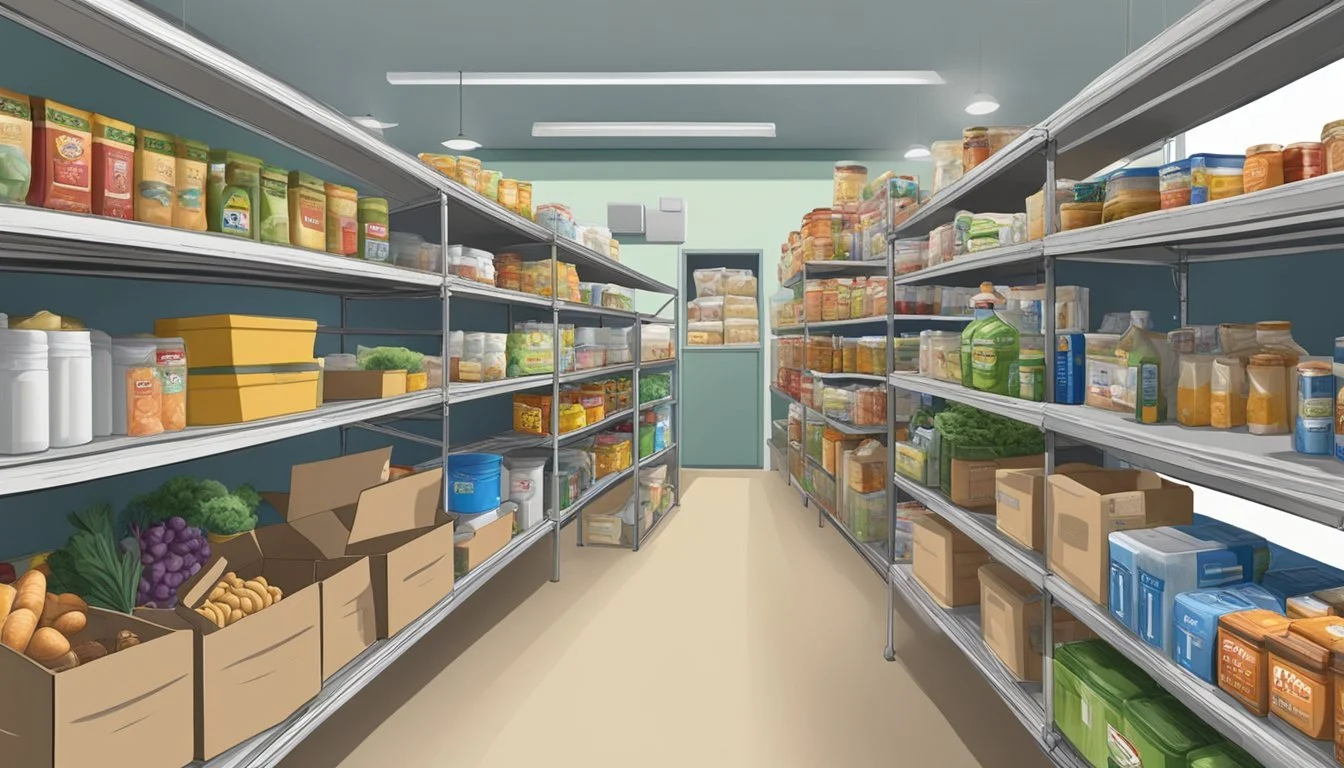Free Groceries and Food Pantries in Parmer County, Texas
Your Ultimate Guide
This Article is Part of Our Guide on Free Groceries in Texas
Access to nutritious food is a fundamental need and various resources are available in Parmer County, Texas, to ensure that residents facing financial hardship can meet this basic requirement. A network of food pantries and food banks operates across the community, offering free groceries to individuals and families in need. These food assistance programs serve a vital role in supporting diverse groups, including seniors, low-income households, individuals with disabilities, and the homeless. By collaborating with organizations like Feeding America, local centers are able to distribute a wide range of items, from fresh produce to non-perishable goods.
Food pantries in Parmer County often extend beyond simply providing food; they act as community support hubs where compassionate volunteers contribute their time and effort. Resources like the Supplemental Nutrition Assistance Program (SNAP) and the Women, Infants, and Children (WIC) program are frequent topics of discussion and assistance within these centers. These programs offer additional support through vouchers and nutritional education, enhancing the health and wellbeing of the community.
Moreover, meal programs and soup kitchens work in conjunction with food pantries to ensure that the immediate needs of all residents, particularly the elderly and homeless, are met. Meal programs often operate through initiatives such as Meals on Wheels, delivering hot meals to seniors who may face mobility challenges or be confined to their homes. By delivering sustenance and kindness, these food assistance programs are a testament to the strength and solidarity of Parmer County as a caring community.
Understanding Food Insecurity
Food insecurity affects both individuals and communities at large. It is often a byproduct of income limitations and can result in a reliance on food distribution services for sustenance.
Impact on Communities
Food insecurity has tangible impacts on communities. It occurs when individuals lack reliable access to a sufficient quantity of affordable, nutritious food, leading to hunger and a heavier reliance on community resources. In Parmer County, Texas, 10.3% of the population experiences food insecurity, equating to 1,020 individuals struggling with consistent access to food. The uncertainty of meals can have compounding social and health effects within a community.
Role of Food Pantries and Groceries
Food pantries and free groceries play a vital role in alleviating the pressures of food insecurity in Parmer County. They act as crucial resources, distributing emergency food supplies to individuals and families in need. Here are some specifics:
Food Distribution: Local pantries partner with organizations like Feeding America to provide meals to those affected by food insecurity.
Income and Food Assistance: The pantries aid those whose incomes fall short of meeting their food needs.
Community Support: These institutions also serve as support centers where individuals can receive assistance in applying for federal food assistance programs.
Finding Food Assistance in Parmer County
Residents of Parmer County looking for food assistance can utilize various resources to find free groceries and food pantries. These services are vital for individuals and families facing food insecurity.
Food Pantry Locator Tools
To locate food pantries within Parmer County, individuals can use online locator tools offered by organizations such as Feeding America. By entering a specific zip code, residents can find nearby food banks and pantry services. For example, one can visit Feeding America's website and provide their location details to get a list of available food assistance options, along with addresses and operational hours.
Feeding America Website: A user-friendly tool to find pantries and food banks.
Local Food Bank: Pantries often collaborate with local food banks, serving as distribution centers.
Importance of Zip Codes
When searching for local food pantries, the user's zip code is an essential piece of information. It enables the locator tools to filter and provide a list of pantries closest to the user's location. Food assistance programs in Texas often vary by county, so it is crucial for Parmer County residents to use their specific zip code, such as 79035 for Friona or 79021 for Bovina, to find the most accurate and relevant resources.
79035 (Friona): Find pantries specific to Friona using this zip code.
79021 (Bovina): Enter this zip code for pantries serving the Bovina area.
Food banks and pantries use zip code information to ensure that assistance is directed to those in the correct geographic area. This helps streamline the distribution process and makes locating assistance an efficient task for those in need.
Operating Hours and Accessibility
Free groceries and food pantries in Parmer County, Texas, prioritize accessibility. By offering various hours of operation and considering the convenience of their locations, they ensure that assistance is reachable to those in need.
Scheduling and Planning
Food pantries operate with scheduled hours that may vary by location and service type. St. Elizabeth SVDP, for example, provides specific pantry hours that are limited and intended to accommodate as many as possible within the operating constraints. To assist with planning, individuals seeking help are encouraged to:
Contact the desired food pantry for the most current hours.
Pantry Name Contact Number Operating Hours St. Elizabeth SVDP 512-251-9838 Call for current schedule
Convenient Access Details
Drive-thru pantries and mobile food banks are innovative responses to offer convenient access to food assistance in Parmer County. These models allow for:
Picking up a variety of free food and groceries without leaving one’s vehicle, easing the process for individuals with mobility issues or those who prefer minimal contact.
Service Type Accessibility Feature Additional Information Drive-thru Pantry Vehicle based pick-up Enter zip code on local food bank websites for locations Mobile Food Pantry Scheduled community visits Check schedules for community visits
Individuals can connect with local food banks to utilize these convenient services, ensuring that food assistance adapts to the needs of the community.
Types of Food Assistance Programs
In Parmer County, Texas, residents in need have access to various food assistance programs, each designed to meet unique dietary and financial needs. These range from local food pantries and national government-supported initiatives to community-specific solutions.
Food Banks and Pantries
Local food banks and pantries operate as the first line of defense against hunger, serving a critical role in providing immediate food relief to residents. They typically offer a variety of free groceries, such as canned goods, fresh produce, and sometimes even personal care items. Entities like the Feeding America network coordinate with these local food banks to enhance their reach and effectiveness.
Soup Kitchens also fall under this category, offering prepared meals to individuals and families requiring immediate food aid without any expected payment.
Government-Supported Programs
Several federal programs bolster local efforts in the fight against hunger.
The Supplemental Nutrition Assistance Program (SNAP), formerly known as food stamps, is available to low-income individuals and families. It provides monthly benefits to purchase groceries at authorized retailers.
The Women, Infants, and Children (WIC) program supports pregnant, breastfeeding women, infants, and children up to age five with nutrition education, health care referrals, and specific foods that meet their nutritional needs.
For senior residents, Meals on Wheels delivers nutritious meals to individuals at home who are unable to purchase or prepare their own meals.
Community-Specific Programs
Community programs often target specific population segments or areas based on domain expertise and localized needs.
Organizations like the Salvation Army provide not only spiritual support but also material assistance, including food aid, to those in need within the community.
Certain programs may cater specifically to areas with high poverty rates or to demographic groups that have limited access to traditional government-supported initiatives.
Each of these programs plays a vital role in ensuring that no resident of Parmer County, Texas, has to face the scourge of hunger alone.
Qualifying for Assistance
Access to free groceries and food pantry services in Parmer County, Texas, hinges on a range of qualifications, primarily income-based, as well as specific programs targeting seniors and vulnerable groups.
Income-Based Eligibility
Individuals and families residing in Parmer County who seek assistance from food pantries and grocery programs must often demonstrate income within set thresholds. Eligibility for these programs, such as the Supplemental Nutrition Assistance Program (SNAP), typically requires incomes to be at or below 130% of the federal poverty level. For instance:
A household of one must have a monthly income less than $1,354
A family of four requires a monthly income below $2,790
These income limits are adjusted annually and can vary based on household size and expenses.
Documentation proving income, such as pay stubs or tax returns, is usually required to establish eligibility. Additionally, referral systems from trusted community partners like schools and healthcare providers can guide low-income individuals to appropriate resources.
Special Programs for Seniors and Vulnerable Groups
Senior citizens and individuals with disabilities in Parmer County may qualify for assistance through the Commodity Supplemental Food Program (CSFP). This program provides a monthly box of food specifically designed to meet their nutritional needs.
To be eligible, seniors should be:
Aged 60 and over
Earning incomes at or below 130% of the federal poverty level
For vulnerable groups, verification of age and income is required, along with proof of residency in Parmer County. The CSFP aims to not only alleviate food insecurity but also promote health and well-being among the elderly population.
Volunteer Opportunities
Engaging in the community through volunteer work at food banks is both rewarding and essential for sustaining these crucial agencies. Feeding America, as a key partner in this effort, empowers volunteers to play a pivotal role in the operation of local food banks. Support from the community is the backbone of these initiatives, ensuring that everyone in need has access to nutritious food.
Volunteering at Food Banks
Volunteers are the lifeblood of food banks, providing necessary manpower to organize, distribute, and sometimes collect food. Prospective volunteers can typically find information and sign-up for shifts through the food bank's website. Feeding America recommends the following steps to get involved:
Locate a Food Bank: Utilize tools like the Feeding America network to find a local food bank.
Sign Up for Shifts: Check the chosen food bank’s website for their schedule of available volunteer shifts and sign up directly.
Participate: Arrive for your shift and contribute to the collective effort to control hunger.
Roles may vary but often include sorting and packing food, assisting in food distribution, and aiding recipients in selecting their items.
Community Engagement and Support
Community support is paramount not just for staff and recipients but also for the spirit of solidarity it fosters. Food banks often partner with local businesses and community groups, creating a united front against hunger. You might see community members driving through food pantries, where they are guided to receive pre-packed groceries, ensuring the swift and respectful distribution of food. For those who prefer being more hands-on, food drives and sorting donations are common ways in which one can assist.
Monthly Volunteering Opportunities:
Food Collection: Coordinates monthly food collections and assists with sorting and shelving donations.
Distribution: Aids in the orderly and efficient distribution of food through drive-thru pantries.
Agencies welcome volunteers from all walks of life, appreciating the diversity of skills and commitment brought to the table. By volunteering, community members deepen their local connections and exemplify the power of shared goals.
Donations and Community Support
Food pantries in Parmer County, Texas, thrive on the generosity of individuals and businesses who donate a variety of grocery items. Their support ensures that essential items like milk, meats, produce, baby formula, and canned groceries reach those in need.
How to Donate Food and Supplies
To donate, individuals can drop off items directly at local food pantries. They often require non-perishable goods such as:
Canned groceries: fruits, vegetables, soups, and beans
Baby formula and child-friendly foods
Dry goods: rice, pasta, and cereal
Fresh produce, if accepted
Dairy products: shelf-stable milk
Protein-rich foods: canned or dried meats
Before donating, contacting the food pantry for specific needs and acceptance criteria is advisable. This ensures donations are both needed and suitable for distribution.
Organizing Local Food Drives
Local food drives are a pivotal way to gather substantial donations. Organizers should coordinate with food pantries to identify the most needed items and set clear goals for the drive. Here are steps to consider:
Select a venue and date for the food drive.
Promote widely across social media, local news, and community bulletins.
Encourage variety, emphasizing the need for a balanced range of food types.
Provide clear guidelines on what can and cannot be donated.
Remember, local businesses can also be approached for sponsorship or to serve as donation points, increasing community involvement and support.
Special Events and Holiday Meals
Parmer County, Texas is a community that comes together to ensure that special events and holiday meals (What wine goes well with holiday meals?) are accessible to those in need. Through various programs and coordinated efforts, the county is able to provide nourishment and festive cheer during key celebrations.
Holiday-Specific Food Distribution
During major holidays, like Thanksgiving and Christmas, food distribution events are organized to provide free holiday-specific groceries to residents. The focus is on offering holiday staples that allow families to prepare traditional meals. For instance, Thanksgiving distributions often include turkeys, cranberries, gravy, and vegetables, ensuring that the essence of the holiday is maintained in every household. At Christmas, these distributions might include hams or other festive foods resonant with seasonal celebrations.
Annual Community Feeding Events
Parmer County is home to annual feeding events that bring the community together. These events are typically spearheaded by local food banks, churches, and charitable organizations. The goal is to create opportunities for community members to enjoy a hot meal in the company of neighbors, without the worry of cost. The events are also a platform for connecting residents with additional support services and fostering a sense of inclusion and community spirit.
Additional Resources and Contacts
This section aims to provide Parmer County residents with direct contact information for local agencies and educational support services to assist with food insecurity.
Local Agencies and Resource Centers
Center of Hope
Address: 1318 Clear Lake Rd, Weatherford, TX
Phone: (817) 594-0266
Services: Grocery assistance and a Food Pantry.
First United Methodist Church
Address: 301 S. Main Street, Weatherford, TX
Services: Food pantry available every Thursday from 5-7PM.
Nutritional Education and Support Services
Residents seeking nutritional education and support can contact the following:
Feeding America
Website: Feeding America
Services: Partnerships with food pantries, educational resources on nutrition.
Local Food Bank
Service: Assistance with finding food today through a simple zip code search on the Feeding America website.
Legal and Policy Framework
Support for individuals in need of food assistance in Parmer County, Texas, is underpinned by a combination of state and federal programs. These programs are governed by a series of legislations and regulations aimed at ensuring that food assistance is provided in an equitable and systematic manner.
State and Federal Assistance Programs
Supplemental Nutrition Assistance Program (SNAP): Administered by the United States Department of Agriculture (USDA), SNAP provides eligible individuals and families with an electronic benefits transfer (EBT) card that can be used like a debit card to buy eligible food items. In Texas, the program is facilitated by the Texas Health and Human Services Commission.
USDA Commodities: The federal government also provides USDA commodities, which are a range of food items that have been purchased and distributed by the USDA. In Texas, these commodities are often distributed through food banks and other local food assistance organizations.
Regulations Impacting Food Distribution
There are specific regulations that guide the operation of food assistance programs:
Eligibility: Regulations determine who is eligible for assistance, encompassing income levels, household size, and other factors such as disability or age.
Distribution: Guidelines dictate how food is to be distributed to ensure food safety and equitable access. For instance, food pantries must adhere to local health department regulations related to food handling and storage.
By adhering to these frameworks, programs like SNAP and the distribution of USDA commodities in Parmer County help to provide essential support to those in need, while complying with legal standards to ensure integrity and public trust in food assistance initiatives.
Innovative Approaches to Food Distribution
In Parmer County, Texas, food distribution has been reimagined with solutions that enhance access and cater to community needs. Next-generation strategies now operate through drive-thru pantries and partnerships with community gardens and culinary programs.
Drive-Thru and Mobile Pantries
In the wake of the pandemic, drive-thru pantries have become pivotal distribution centers for food assistance, accommodating the growing need for low-contact services. They streamline the process by allowing residents to receive pre-packed groceries directly into their vehicles. This method ensures efficiency and safety for both volunteers and community members. Moreover, mobile pantries extend the reach, serving areas without a permanent pantry presence.
Location: Central Distribution Site
Service Days: Tuesdays and Thursdays
Method: Drive-thru pick-up
Items Distributed: Fresh produce, canned goods, dairy products
Community Gardens and Culinary Programs
Community gardens serve dual purposes: they provide fresh produce to local food pantries and educate community members on sustainable agriculture. These gardens are often supplemented by culinary training programs that offer residents professional skill-building opportunities. Participants in these programs not only learn about nutrition and cooking but also contribute to the food prepared for distribution, thus bolstering local efforts against hunger.
Community Garden Contributions:
Educational workshops
Volunteer opportunities
Culinary Training Program Highlights:
Skills development: cooking techniques, food service operations
Meal production for pantry distribution
Certifications leading to employment opportunities
Addressing the Root Causes of Food Insecurity
In Parmer County, Texas, tackling the root causes of food insecurity involves innovative long-term strategies as well as establishing a supportive network that ensures sustainable resources are available to those in need.
Long-Term Community Solutions
The community in Parmer County recognizes that handing out boxes of food, though necessary, is not the only answer to hunger. Instead, there is a shift towards long-term solutions which focus on the underlying issues. These include initiatives like job training programs, educational workshops on nutrition and budgeting, and increasing access to affordable housing. Partnerships with local businesses are key to providing job opportunities that pay living wages, allowing individuals to afford their own groceries rather than relying on food pantries.
Key Initiatives:
Job training programs
Nutritional education
Affordable housing efforts
Building a Network of Sustainable Support
A network of sustainable support within Parmer County is imperative to combat food insecurity effectively. The establishment of a Resource Center that acts as a hub for assistance programs is one significant development. This center serves as a coordinating body for various non-profits, faith-based groups, and governmental agencies, ensuing no duplication of services and optimizing resource allocation.
Network Core Components:
A centralized Resource Center
Partnerships with diverse support groups
Coordination for effective resource distribution
The network ensures that while immediate needs are met, there is also a focus on self-sufficiency and empowerment. Allocation of resources and continuous support through this network are essential in fostering a resilient community capable of facing the challenges of food insecurity.
Conclusion
In Parmer County, Texas, residents have access to a variety of resources designed to alleviate food insecurity. Food banks and pantries offer free groceries and meals to those in need. Through generous community support and national programs like Feeding America, individuals and families can find the help they require.
Local food banks collaborate with pantries and distribution initiatives, like drive-thru pantries, to ensure the accessibility of food supplies. These operations respect the dignity and time of those they serve by providing convenient pickup options. Additionally, social service programs in the area may assist with applications for SNAP benefits or WIC vouchers, contributing to longer-term food security solutions.
Feeding America member food banks can be located using one’s zip code.
Drive-thru pantries offer a mix of food items in a convenient manner.
Residents should be encouraged to seek out these vital services. Community efforts can foster a supportive environment where asking for assistance is normalized and resources are known to those who might benefit from them. Food pantries and other hunger-relief programs in Parmer County are crucial for combating hunger and providing nutritional support for all residents.



